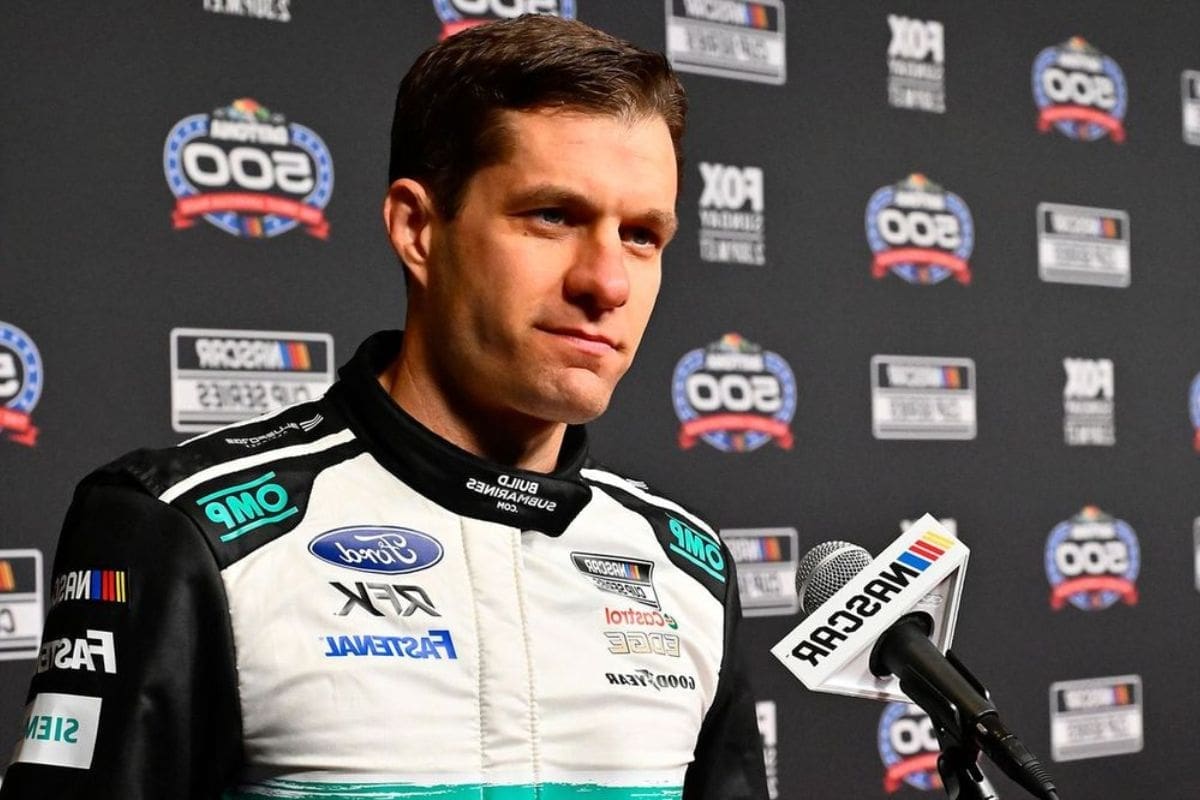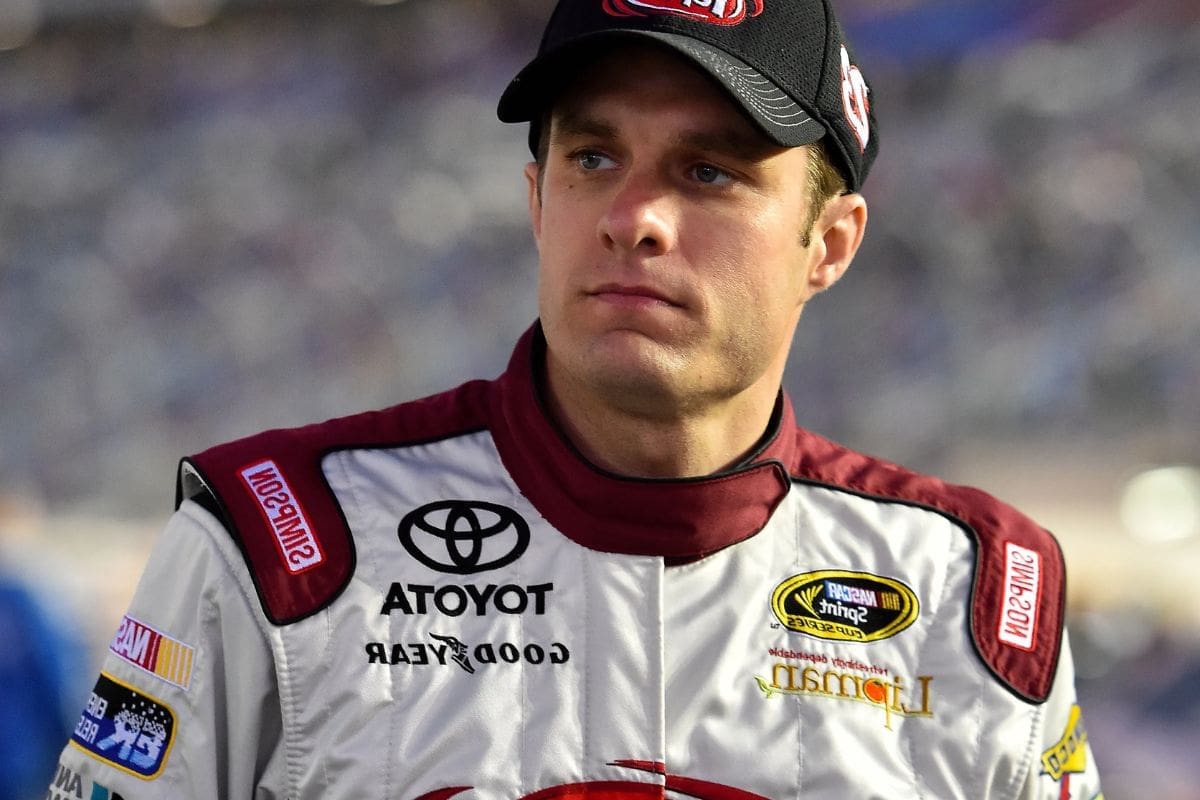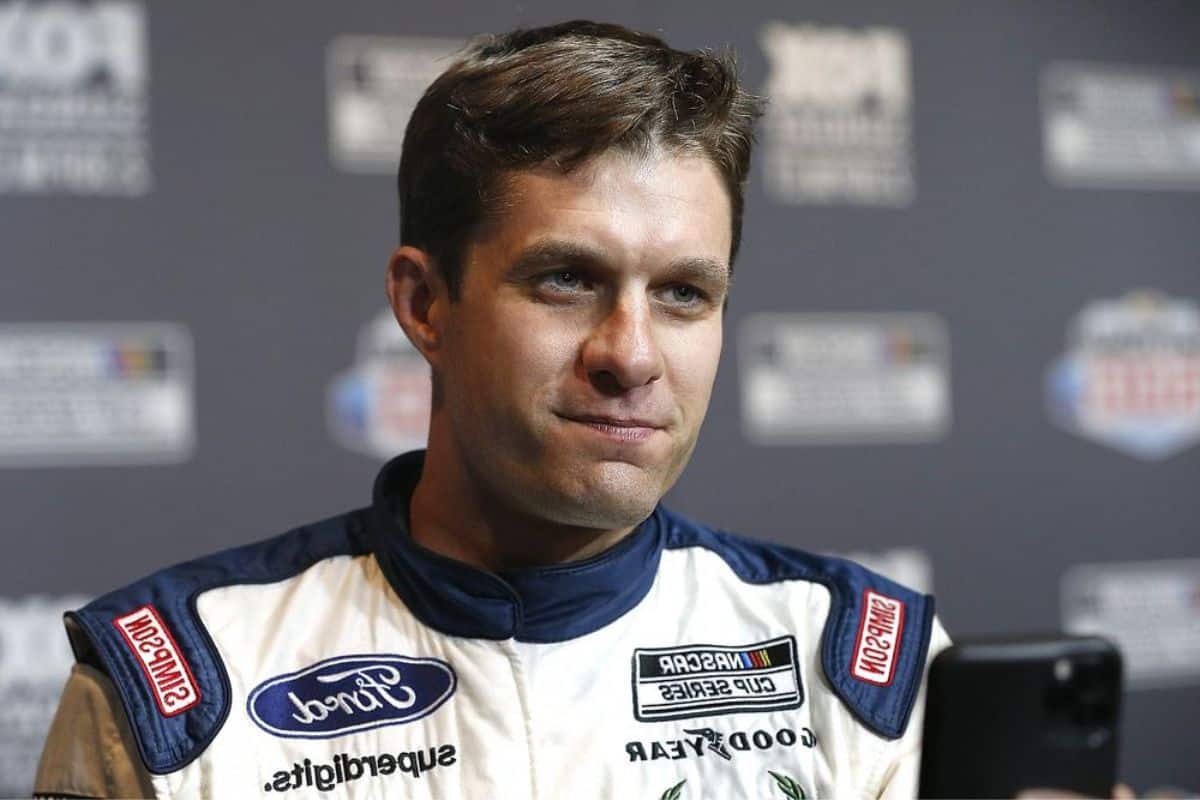David Ragan Praises NASCAR’s Move to EV: David Ragan‘s commendation of NASCAR’s venture into the electric vehicle market, represented in his remark, ‘I do applaud NASCAR,’ marks a crucial moment for the sport. As NASCAR reveals its all-electric SUV prototype, Ragan’s praise highlights the broader industry’s shift towards sustainability and innovation. This proactive stance not only aligns with global environmental goals but also redefines the future of competitive racing. The implications of integrating electric and hydrogen-powered technologies into NASCAR’s ecosystem are profound, raising questions about how these advancements will reshape the fan experience and the sport’s competitive nature.
Key Highlights
- David Ragan supports NASCAR’s commitment to zero carbon emissions by 2035 through electrification.
- Ragan praises NASCAR’s proactive stance on sustainability and the exploration of hydrogen-powered race cars.
- Ragan acknowledges NASCAR’s alignment with broader automotive trends for future relevance.
- Ragan appreciates NASCAR’s balanced strategy of innovation while preserving traditional racing experiences.
- Ragan recognizes NASCAR’s efforts in phasing electric vehicles gradually to maintain competitive performance.
NASCAR’s All-Electric SUV Prototype
NASCAR’s presentation of an all-electric SUV prototype in Chicago marks a pivotal milestone in the sport’s evolution towards embracing sustainable technology. This vehicle, which boasts twice the horsepower of the current Next-Gen cars, represents a notable departure from NASCAR’s traditional reliance on loud, V8-powered internal combustion engines. The prototype’s debut is not simply a technological display but a strategic step to gauge fan interest in electric vehicles (EVs) as NASCAR looks to reduce its carbon footprint.
The prototype is more than a concept; it is a fully drivable vehicle that shows the potential of electric powertrains to deliver performance that not only matches but exceeds that of traditional combustion engines. This leap in performance metrics is indicative of how far electric vehicle technology has advanced, signaling a new era for motorsports that could blend high performance with environmental responsibility.
David Ragan, a veteran of the sport, praised the initiative, mentioning that this move aligns NASCAR with a global trend towards sustainability. His endorsement highlights the broader acceptance within the sport’s community that innovation and tradition can coexist.
NASCAR’s Commitment to a Sustainable Future
Embracing a vision of environmental stewardship, NASCAR has outlined an ambitious plan to achieve zero carbon emissions across its core operations by 2035 through electrification and cutting-edge technologies. This commitment signifies a game-changing shift for a sport deeply rooted in the legacy of internal combustion engines, signaling a forward-thinking approach to sustainability and innovation.
NASCAR’s forward-looking strategy involves collaboration with key automotive partners—Chevrolet, Ford, and Toyota—to develop a brandless electric vehicle (EV) prototype. This prototype, capable of delivering an astounding 1,340 horsepower, represents a remarkable leap in performance, doubling the power output of current Next Gen internal combustion engines. With its three electric motors producing 1,000 kW at peak power, this EV highlights the potential of electric technology to not only match but exceed the capabilities of traditional engines.
David Ragan, a part-time Cup Series driver, has praised NASCAR’s proactive stance. Speaking to SiriusXM NASCAR Radio, Ragan highlighted NASCAR’s drive to anticipate future trends rather than merely react to them. He emphasized that while the Next Gen race car remains a critical part of the series for the foreseeable future, the development of fully electric vehicles is an essential element of NASCAR’s long-term strategy.
“NASCAR has been very upfront from the get-go, this is a car that we have designed and built to replace the current Cup Series car or to start a new series. We don’t know what the future may hold for NASCAR. I think they really like the Next-Gen race car that we have right now for the foreseeable future.” – (Ragan)
Moreover, NASCAR is exploring other advanced technologies, such as hydrogen-powered race cars, further showing its commitment to sustainable innovation. Ragan’s insights reflect a broader industry recognition that the future of motorsports must align with global sustainability goals.
“That’s what these Cup teams are going to continue running. I do applaud NASCAR for thinking into the future and trying to be proactive instead of reactive. I think that it was really neat that NASCAR together with the manufacturers said ‘Look what’s the next 5-10 years look like?’ And certainly, a fully electric vehicle is one of them. I’ve heard John Probst talk about exploring some hydrogen-powered race cars. Obviously, the hypertechnology is something that we have talked about in the garage for a number of years.” – (Ragan)
View this post on Instagram
Features and Capabilities of the Electric Prototype
Often hailed as a groundbreaking innovation, the electric prototype shows a trio of STARD UHP 6-Phase motors that collectively power all four Goodyear Racing Eagle tires, displaying an impressive leap in performance capabilities. This technological marvel combines efficiency with power, offering a peek into the future of racing. The EV prototype’s design and engineering show NASCAR’s dedication to integrating advanced electric technology into their competitive landscape.
The car is equipped with three STARD UHP 6-Phase Motors high-performance motors—one in the front and two at the rear. This setup ensures an ideal distribution of power across all four tires, boosting traction and acceleration significantly.
78-kWh Liquid-Cooled Battery pack is designed for sustained high performance and durability, crucial for the demands of competitive racing. The liquid cooling system guarantees the battery operates within optimal temperature ranges, contributing to consistent performance.
The regenerative braking technology transforms kinetic energy into electrical energy, effectively extending the car’s range and efficiency. This system not only improves sustainability but also improves the driving dynamics, particularly in short track and road course scenarios.
As a global leader in electrification and automation, ABB’s involvement highlights the prototype’s advanced technological credentials. This partnership showcases a notable endorsement from a prominent industry player, adding credibility and momentum to NASCAR’s EV initiatives.
Challenges and Future Prospects for Electric NASCAR
Moving to electric vehicles presents a unique set of challenges and opportunities for the future of NASCAR. The $1.5 million EV prototype, driven by David Ragan, displayed impressive acceleration but encountered hurdles, such as increased weight impacting its performance in turns. Specifically, the prototype was two-tenths of a moment slower per lap at Martinsville compared to a Next-Gen car. Despite these challenges, the promise of innovation and sustainability fuels the excitement around electric NASCAR.
One of the primary challenges is achieving competitive performance without compromising the traditional racing experience. The prototype’s weight, which slows it down in turns, highlights the need for further advancements in battery technology and vehicle design. Engineers are focused on creating vehicles that can maintain high performance while staying true to the sport’s essence. This endeavor is not just about speed but also about ensuring that electric NASCAR cars provide the same thrilling experience fans expect.
Future prospects, however, look promising. Rumors suggest that NASCAR might integrate hybrid models or even establish an exclusive electric series similar to Formula E. Such moves could bridge the gap between what fans drive on the roads and what they see on the track. The rise of electric vehicle (EV) ownership in the U.S. indicates a growing market that NASCAR could tap into, potentially rebuilding the connection between fans and the sport.
John Probst’s openness to an EV-based NASCAR series shows the commitment to innovation and sustainability. By aligning with broader automotive trends, NASCAR can remain relevant and continue to captivate its audience in a rapidly evolving landscape.
NASCAR’s Strategy and Fan Reception
NASCAR’s strategy for integrating electric vehicles into its racing portfolio, though still in its early stages, aims to balance technological innovation with the traditions cherished by its fanbase. Vice President John Probst’s recent comments highlight a subtle approach, emphasizing that while an all-electric series isn’t imminent, the door remains open for future advancements. This dual approach seeks to keep the sport’s core intact while exploring sustainable innovations.
“I wouldn’t sit here today and say we’ll never do a series. I’m just saying that right now. I don’t want to create the expectation that the series is going to be announced for next year. That’s not the case. We’re not saying no to it either. But I just think it’s an opportunity for us to do something that is meaningful in the sense that we’re developing new technology for our car [and then] judge the feedback from our fans. At the end of the day, that’s all we measure ourselves by ultimately.” – (John Probst)
Instead of suddenly replacing gasoline-powered cars, NASCAR is opting for a phased integration of electric vehicles. This allows time for fans to adjust to new technology without feeling excluded. The $1.5 million electric prototype remains in the developmental stage, ensuring that any future electric vehicle meets the high standards of performance and excitement that fans anticipate.
Probst highlighted the importance of fan reception. NASCAR intends to closely assess fan reactions before making any sweeping changes, guaranteeing that the sport remains audience-centered. The ultimate goal is to pivot towards a more sustainable future, aligning with global trends in motorsports while preserving the essence of NASCAR.
News in Brief: David Ragan Praises NASCAR’s Move to EV
NASCAR’s proactive approach to the electric vehicle market marks a notable step towards sustainability, reflecting a commitment to reducing carbon emissions while embracing cutting-edge technologies. The introduction of an all-electric SUV prototype displays the organization’s dedication to maintaining the sport’s excitement and competitiveness.
Despite challenges, the positive reception from the racing community and the calculated shift towards sustainable practices highlight NASCAR’s potential to influence the future of motorsports positively.
ALSO READ: David Ragan Challenges Old School Fans Amid NASCAR’s Evolution



